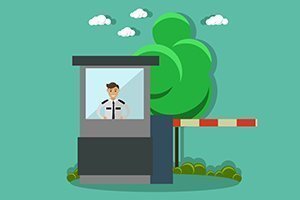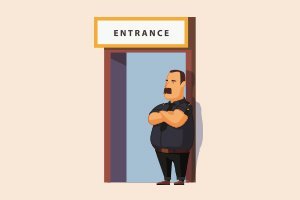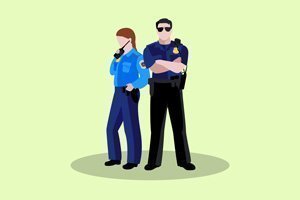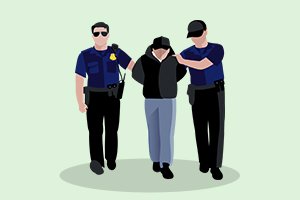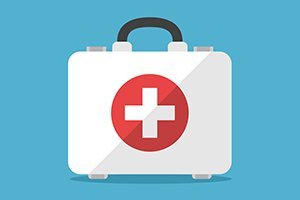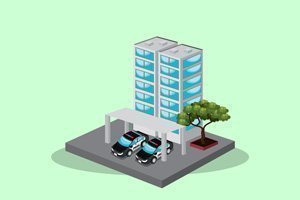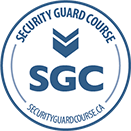CPR brings Security to those who have it and Security Licenses to those who need them.
You’re probably aware that many professions require mandatory CPR training. Lifeguards, medical personnel, paramedics…but did you know that security guards are that category? That’s right, in order to obtain your Security Guard License in Ontario, you need to have at minimum, Emergency Level First Aid & CPR. If you’re considering a profession in the security industry read on to learn what you will need and how it can help you be successful in your career.
Why do I have to take CPR training to get my Security Guard license?
Guarding and providing security to a workplace or area is an important job. To do it well you need to be prepared for emergency situations. CPR training will give you the assurance that you will be ready if you ever need to come to someone’s aid. Part of keeping an area secure is to handle incidents and emergencies that happen while on the job. It’s important to be prepared for medical emergencies and incidents in daily life, but it is especially important when you’re in a job where you are put in a position to assist and serve the public. Since Security Guards may be the only people with CPR training in a vicinity when an emergency occurs, they need to be able to act fast and immediately perform CPR to help those they are responsible for protecting.
Shouldn’t I leave First Aid to the professionals?
According to the Red Cross, helping people understand how injuries can happen and the strategies to reduce them, combined with education on the latest First Aid skills and knowledge, has been shown to increase confidence and ultimately increase people’s ability and willingness to act in an emergency. This means if you’re prepared for an emergency you will be able to respond appropriately. Sometimes you will be the only person onsite who can help.
How do my actions as a First Aider help?
Learning First Aid and offering treatment to an injured or ill person before paramedics can be summoned can preserve life, prevent further injury and promote recovery. Ambulance personnel, police officers, and firefighters called to the scene of an emergency are known as “first responders” but until they arrive you may be the only one on scene to provide first aid. When first responders arrive at a scene you can expect them to ask direct questions about the scene, the casualty and your involvement. If a Security Guard is trained in First Aid, not only can they provide care before help arrives, they can relate the history of the scene and the condition of the casualty, saving valuable time.
What will First Aid Certification give me?
The Red Cross states, “First Aid provides individuals with the confidence to: recognize illness or injury, provide care, recognize personal limitations and to access more advanced care.” Your specific training to become a security professional will include different types of emergency response situations such as choking, fainting, bleeding and CPR. When you’re prepared you can act quickly and appropriately.
What level of CPR Training do I need for security?
According to the Ministry of the Solicitor General of Ontario to be eligible for a security licence, you must have a valid first aid and CPR certification. The minimum accepted level of first aid training is Emergency Level First Aid and CPR (1 day of training). The recommended level is Standard First Aid and Level C CPR, which is an extended program (2 days of training). We offer these courses in a variety of locations and times throughout the GTA and surrounding areas.
What is the role of a security professional in an emergency situation?
Once you have obtained your Security Guard License and are employed your role will depend on your employer’s regulations concerning emergencies. The Ontario Ministry of the Solicitor General outlines some common expectations which may include:
- Confirm emergency services have been notified: Check that help has been called, and if not contact emergency services
- Access the scene: Access the scene for obvious hazards such as: fire, smoke, fallen power lines and obscure dangers such as a discarded needle under a casualty to relate to first responders when they arrive.
- Watch for dangerous situations: inclement weather, a compromised vehicle or a structure, and a fire which isn’t in control can all develop quickly. Knowing how to respond is important.
Emergency Scene Management
Emergencies happen on the job. Being prepared for an emergency is a sure-fire way to respond effectively and remain calm. Having the necessary skills in place will ensure that if an emergency arise on the job you will be ready. Learning how to secure the scene, assess a situation, examine response alternatives, select and implement a response strategy, allocate resources, plan for expansion and demobilization of the event, and ensure public and fire fighter safety are critical skills for success and safety. We want you to have both!
In addition to providing first aid and accessing a scene for hazards a Security Guard on an emergency scene may also:
- protect the casualty’s belongings
- keep unnecessary bystanders away
- offer reassurance to family or friends of the casualty
We offer the Emergency Level First Aid training and CPR certification required for an Ontario Security Guard License. An 8 hour,1 day course covering all injuries and life-threatening illnesses.
Interested in becoming a Security Guard or becoming Security Guard certified? Visit SGC today to learn more about how to get started in your career as a security professional and get your Emergency and CPR certification today!

